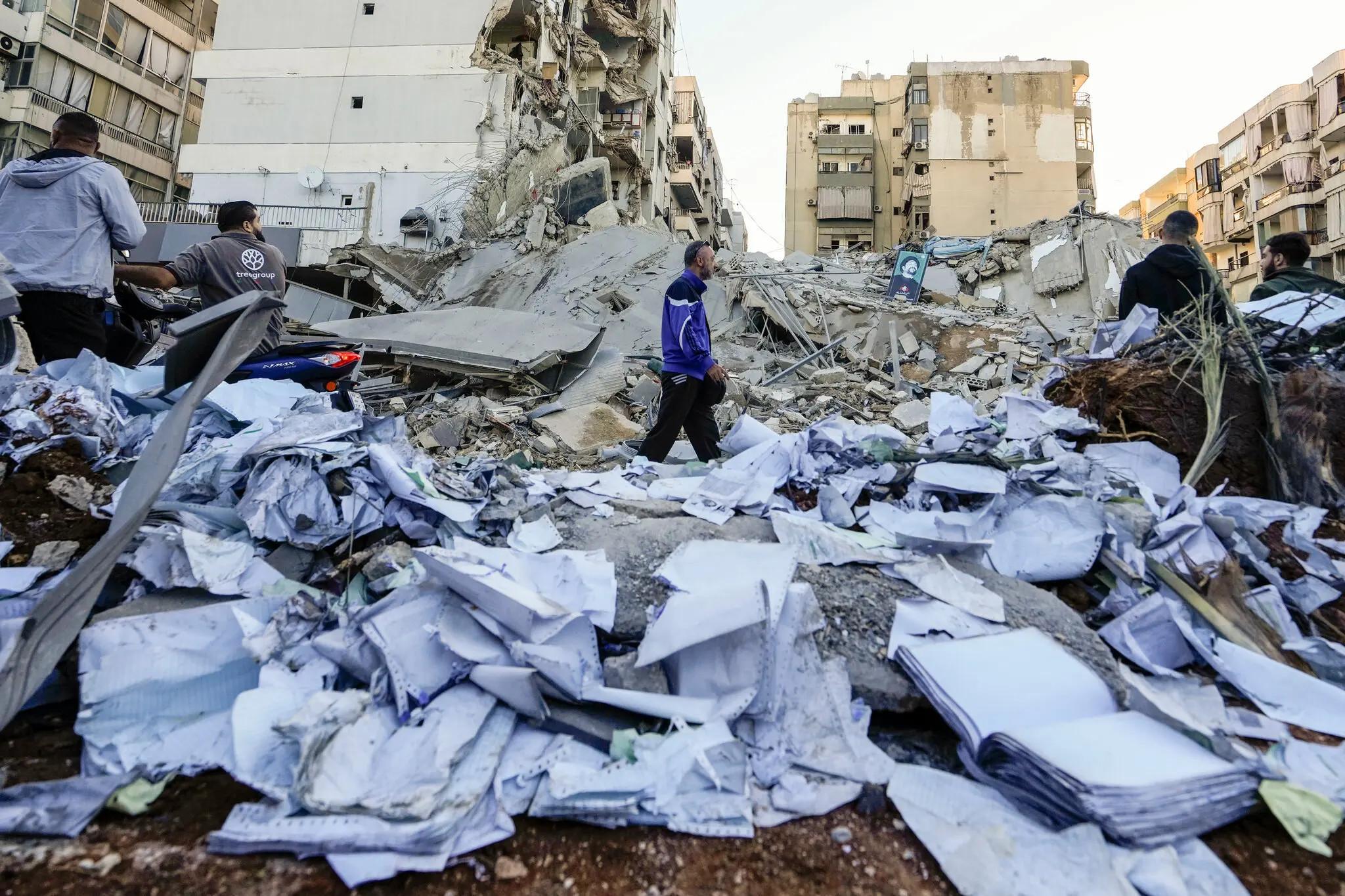
Al-Qard al-Hasan, the Hezbollah-Linked Finance Group
The Israeli military conducted a wave of airstrikes across Lebanon on Sunday, targeting multiple branches of Al-Qard al-Hasan, a financial organization that functions as a bank and is associated with the Iranian-backed militant group Hezbollah.
Rear Adm. Daniel Hagari, the military’s spokesman, said in a news briefing on Monday that one of the targets that was hit was a vault used by Al-Qard al-Hasan that was underneath a residential building in Beirut, the Lebanese capital. The vault, he said, contained “tens of millions of dollars.”
Israel’s minister of defense, Yoav Gallant, signed an order on Monday adding Al-Qard al-Hassan to a list of groups designated by Israel as terrorist organizations. The designation is part of a wider campaign led by Israel’s defense establishment, targeting the economic resources of Hezbollah and other terrorist organizations.
What is Al-Qard al-Hasan?
In addition to its military wing, Hezbollah also functions as a political organization and provides a range of social services inside Lebanon. Al-Qard al-Hasan is registered as a charity in Lebanon.
The organization’s name translates as “benevolent loan,” lending money based on the principles of Islamic finance, which prohibits interest. The loans, usually no more than $5,000, are backed by deposits of gold, jewelry or other valuable goods. It also offers savings accounts and financial transfers, and processes payments.
The de facto bank, which has around 30 branches, is the largest microcredit organization in a country where the traditional banking sector is in shambles. It is not regulated by the central bank and is not part of the international banking system.
Who uses the organization?
Since its founding in the early 1980s, Hezbollah has been a significant force in Lebanon, wielding political power and military strength, as well as providing social support, particularly to the country’s large Shiite population. The bank was set up in 1983 to serve the Shiite community, but it gained more clients in 2019 when the banking system all but collapsed.
The U.S. Treasury Department claims that the bank has been used by Hezbollah as “a cover to manage the terrorist group’s financial activities and gain access to the international financial system.”
The department placed Al-Qard al-Hasan under sanctions in 2007 for operating as Hezbollah’s de facto banking arm. In 2021, in the wake of the Lebanese financial crisis, the sanctions were strengthened, with the department accusing the association of “hoarding hard currency that is desperately needed by the Lebanese economy” and compromising the stability of the Lebanese state.
Why is Israel targeting Al-Qard al-Hasan?
Shlomit Wagman, the former chair of Israel’s Money Laundering and Terrorism Financing Prohibition Authority, said Al-Qard al-Hasan has become Hezbollah’s principal financial institution, responsible for safeguarding some $750 million a year in Iranian funding, as well as the proceeds from the organization’s criminal enterprises that are used to finance its attacks on Israel.
In a statement following Sunday’s attacks, Israel’s military said that the banking association “directly funds Hezbollah’s terror activities,” including the purchase of “weapons and payments to operatives in Hezbollah’s military wing.” The strikes, it added, are part of Israel’s efforts to “degrade Hezbollah’s terror infrastructure, its military capabilities and ability to rebuild.”
What is the impact of the strikes?
On Monday, the immediate damage from the strikes remained unclear, with no casualties reported.
Few traditional bank branches would have significant amounts of cash on hand, Ms. Wagman said. But the international sanctions against Al-Qard al-Hasan meant it was more likely that its branches might have kept physical caches of dollars, as well as the gold of its depositors. If these were destroyed in the strikes, Hezbollah’s ability to fund future attacks may be further reduced, Ms. Wagman said.
Still, she said, “We can also assume that Iran, which is the major sponsor of Hezbollah, will very soon refuel those supplies.” She noted that the psychological impact may be more enduring, serving to “further reduce the trust between Hezbollah and the Lebanese people.”
Makram Ouaiss, executive director for the Lebanese Center for Policy Studies, a Beirut-based research organization, said that Al-Qard al-Hasan probably knew it would be targeted, and likely would have moved valuables to a safe location. He also noted that most branches of Al-Qard al-Hasan in Beirut occupy the ground floor of mixed commercial and residential buildings. “This probably isn’t going to hurt Hezbollah, but it will hurt lots of Lebanese,” he said.
What is the economic situation in Lebanon?
In a word, catastrophic. The traditional banking system all but collapsed in 2019, largely because of a combination of bad policy, bad loans and corruption. Account holders with mainstream banks have not been able to access most of their funds for several years.
The World Bank estimates that more than a third of the country is living below the poverty line, based on prewar data. With more than a million Lebanese people displaced and hundreds of buildings destroyed in the Israeli bombing campaign over the past month, the number of people living in poverty is likely to be far worse.
Source » nytimes





